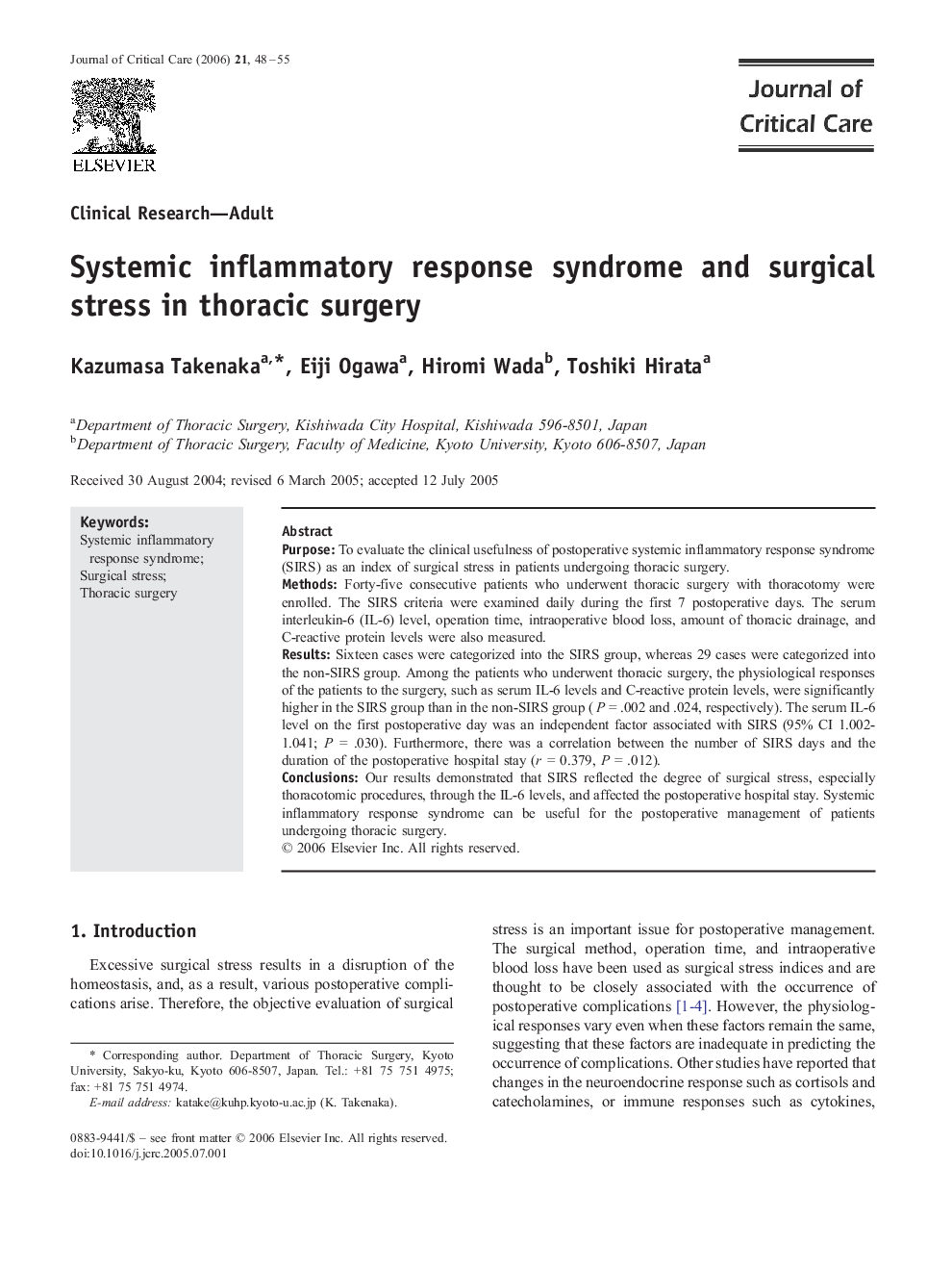| Article ID | Journal | Published Year | Pages | File Type |
|---|---|---|---|---|
| 2765430 | Journal of Critical Care | 2006 | 6 Pages |
PurposeTo evaluate the clinical usefulness of postoperative systemic inflammatory response syndrome (SIRS) as an index of surgical stress in patients undergoing thoracic surgery.MethodsForty-five consecutive patients who underwent thoracic surgery with thoracotomy were enrolled. The SIRS criteria were examined daily during the first 7 postoperative days. The serum interleukin-6 (IL-6) level, operation time, intraoperative blood loss, amount of thoracic drainage, and C-reactive protein levels were also measured.ResultsSixteen cases were categorized into the SIRS group, whereas 29 cases were categorized into the non-SIRS group. Among the patients who underwent thoracic surgery, the physiological responses of the patients to the surgery, such as serum IL-6 levels and C-reactive protein levels, were significantly higher in the SIRS group than in the non-SIRS group (P = .002 and .024, respectively). The serum IL-6 level on the first postoperative day was an independent factor associated with SIRS (95% CI 1.002-1.041; P = .030). Furthermore, there was a correlation between the number of SIRS days and the duration of the postoperative hospital stay (r = 0.379, P = .012).ConclusionsOur results demonstrated that SIRS reflected the degree of surgical stress, especially thoracotomic procedures, through the IL-6 levels, and affected the postoperative hospital stay. Systemic inflammatory response syndrome can be useful for the postoperative management of patients undergoing thoracic surgery.
